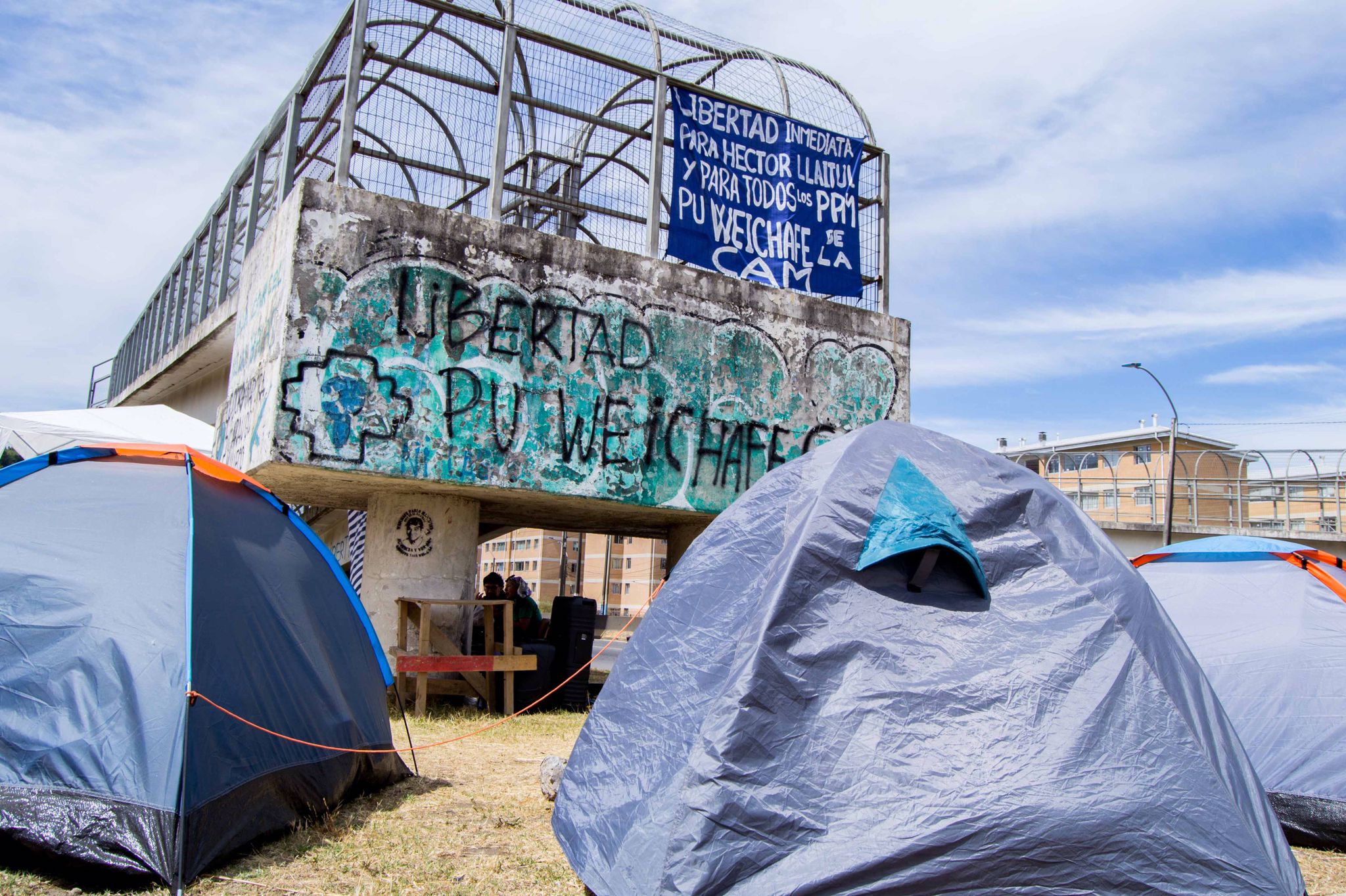The road from Temuco to Concepción is a tarmac river that runs along pine and eucalyptus woods.
A stretch of Pan- American Highway that twists and turns among plantations of trees for the wood and cellulose production, mostly monocultures managed by big forestry companies.
The continuous and monotonous succession of trees is very often abruptly interrupted by a few hectares of barren land, a completely bare brown desert.
In the background, you can see stacks of logs ready to be transported.
It seems to observe a battlefield: the ground looks turned over by furrows and jagged holes and all around carcasses of branches lie on the ground lifeless.
Closing your eyes you can imagine the machinery making noise, the workers screaming and the wood falling down, shaking the ground from the foundations.
So much noise and then nothing more: miles of land deprived of life that used to cover it and a grim silence of death.
A few meters away, another field appears where new bashful trees have just been planted.
They will have time to grow a few meters before they will be sacrificed too, defenceless victims of a never-ending war.
This is the legacy of the forestry industry on the morphology of the territory: a legacy made up of extractivism, silence and rubble.
However, in Chile, another silence hovers in the air. It lurks beyond the Bío Bío River, expanding northwards and seizing the country from the coast to the Cordillera, up to exhilarate the capital city streets and the palaces of power.
A silence made up of indifference and cold political calculation.
It is the State’s response to the Mapuche inmates on hunger strike in the prisons of Concepción and Temuco. On one hand, the protestors ask for the trial review since it seems that some convicts were found guilty in the absence of clear and certain evidence. On the other, the inmates try to get better prison conditions and the right to live in respect of Mapuche traditions and culture within jails, especially regarding the following aspects: nutrition, spirituality and contact with the land.
This is why they call for the reactivation of a specific section for Mapuche inmates in Concepción prison that complies with the provisions from the 169 ILO Convention on Indigenous Peoples, ratified by Chilean State in 2008. Alternatively, they ask for being transferred to Temuco prison where a specific section for Mapuche prisoners already occurs.
These are the main demands behind the huelga de hambre (hunger strike). An extreme, but nonviolent action that Mapuche inmates have begun to undertake for several years, enabling them to get rights that are very often considered as privileges by media and the penitentiary police.
Currently there are 11 hunger strikers in Concepción, joined by other 5 in Temuco prison.
For some prisoners, the strike has been going on for almost 80 days and, despite their exhausted psychophysical conditions, they are determined to continue.
Nevertheless, no response has come from La Moneda. Indeed, up to now, no public announcements or official statements have been revealed.
On one side, the general political direction doesn’t seem interested in dealing with the issue at all, on the other, the penitentiary police reaction didn’t take long to turn into a battleground in the remote provinces of the Republic.
Indeed, the Temuco prison management has decided to punish 5 Mapuche prisoners who started hunger strike in support of their comrades in Concepción. Family visits along with the use of traditional products and drinks have been forbidden as punitive measures. Excessive measures - reported by prisoners and family members – which aim at shattering resolve of the strikers and really senseless, taking into account the nonviolent character of the protest.
A few days ago, Emilia Nuyando, an MP with Mapuche origin, tried to urge the Government and the Ministry of Justice to consider the requests raised by the inmates on hunger strike in the various prisons, before it will be too late. She claims that some of these demands can be met.
However, also this appeal has not yet been answered.
After all, for some time now, a silence curtain seems to surround the Parliament halls too, among conservative majorities, disappointed hopes and coalitions.
Despite this, big noise is made by the chains of Esteban Henríquez, a 25-years-old inmate on hunger strike, who was transported two weeks ago from prison to the regional hospital in Concepción because of his failing health.
Doctors report that the patient worsens day-by-day and family members criticize the excessive coercive measures he has been subjected to.
To prevent him from escaping, Esteban’s feet have been tied to bed by handcuffs, despite he can’t move due to his health conditions. Moreover, he is kept under constant control by armed guards inside and outside the hospital room.
Giuseppe


 OPERAZIONE COLOMBA
OPERAZIONE COLOMBA
